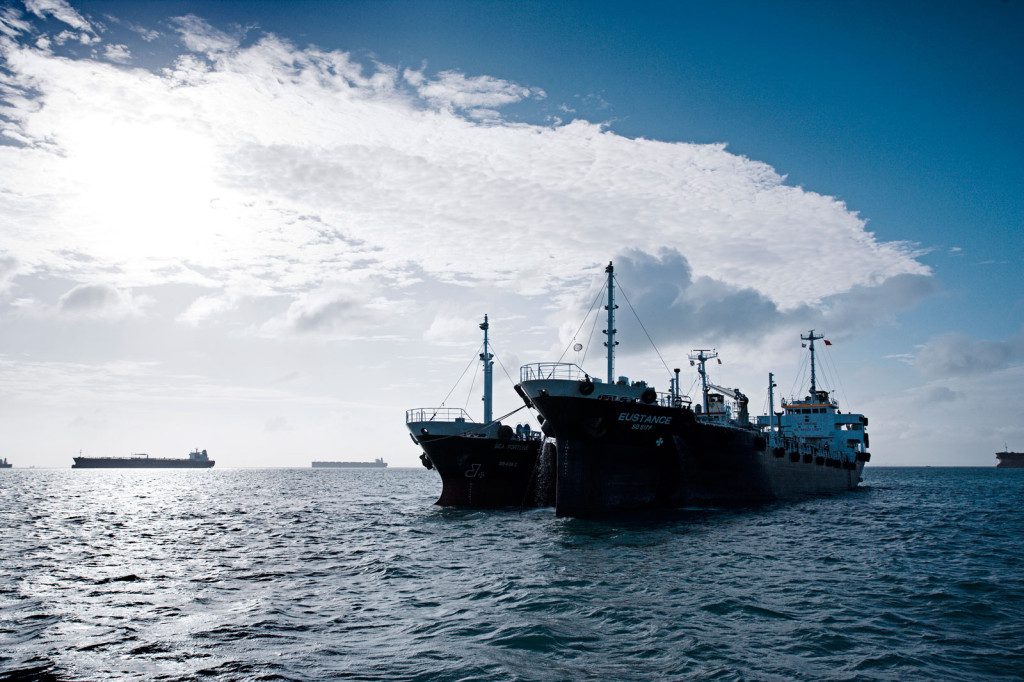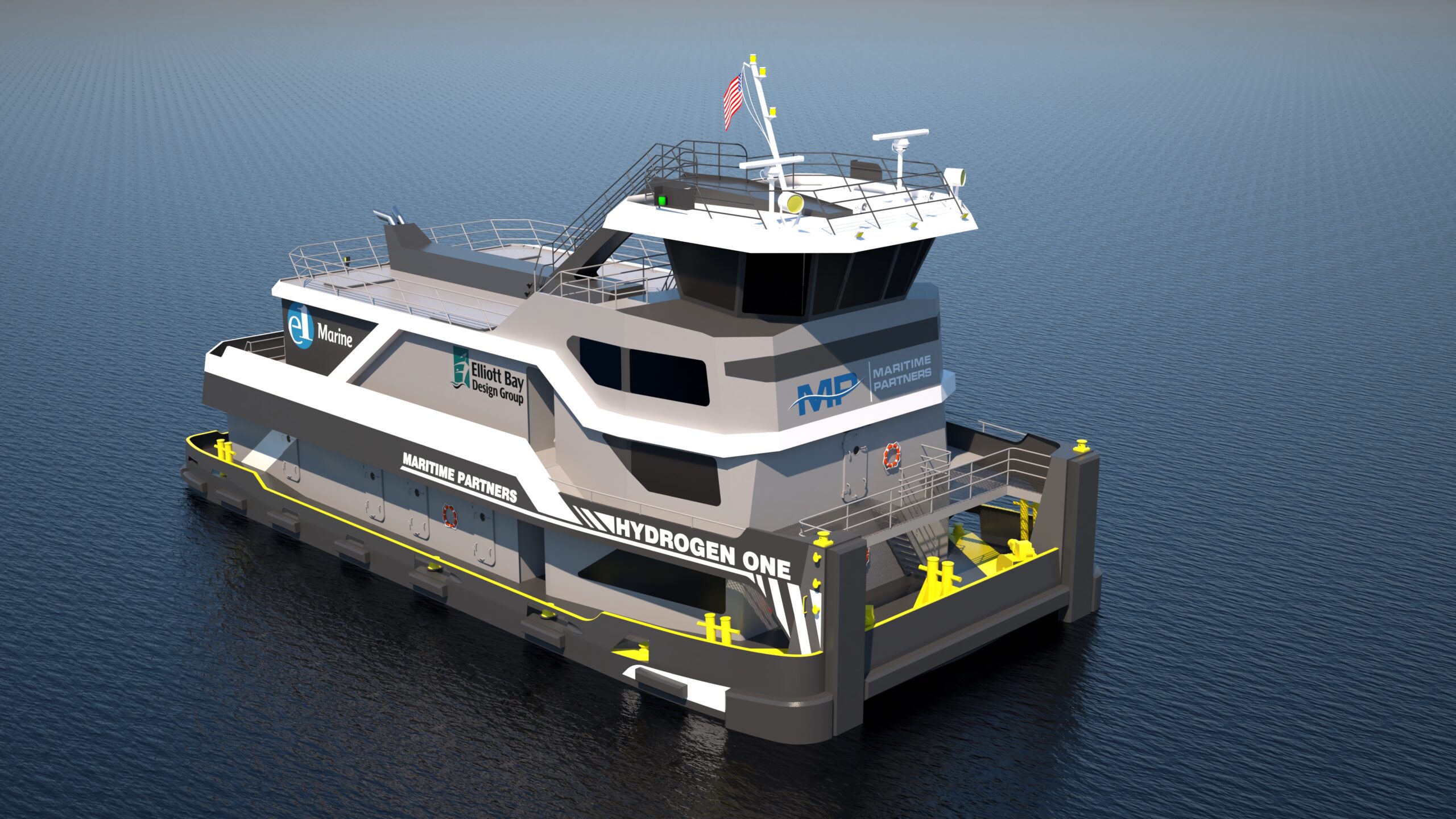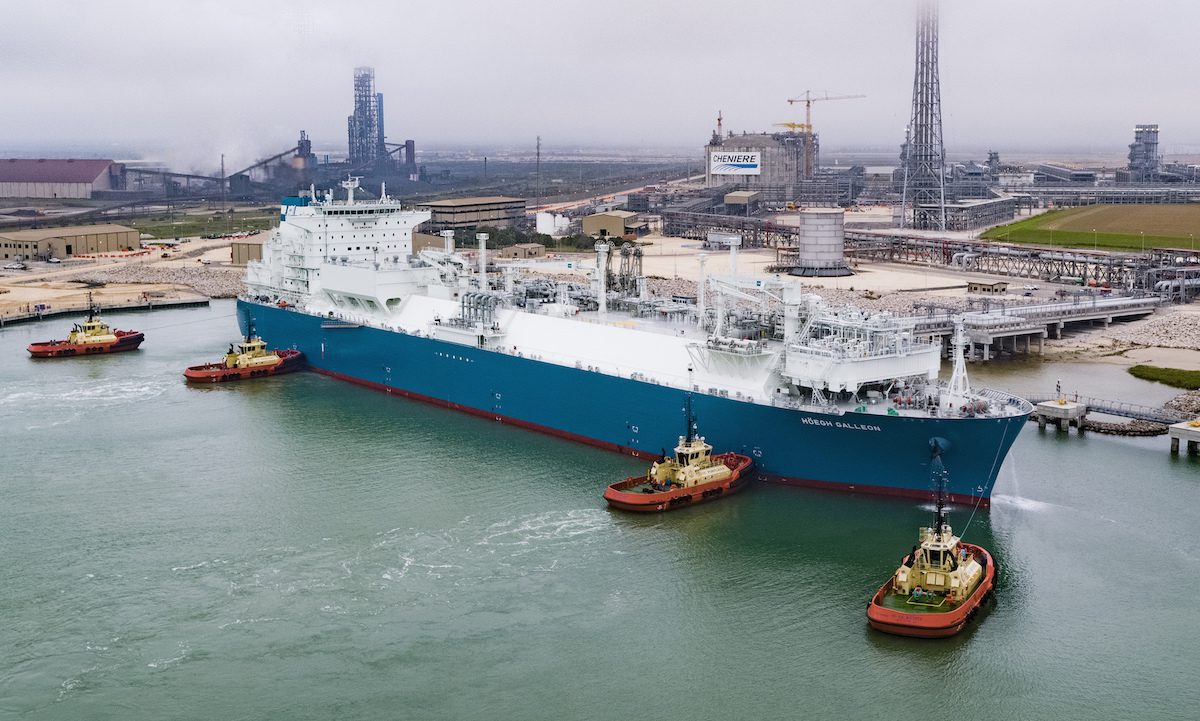File Photo
 SINGAPORE, April 17 (Reuters) – Switching to liquefied natural gas (LNG) to fuel ocean-going vessels may not be enough for shippers to comply with long-term emissions regulations and they will have to find additional ways of reducing emissions, JBC Energy said on Tuesday.
SINGAPORE, April 17 (Reuters) – Switching to liquefied natural gas (LNG) to fuel ocean-going vessels may not be enough for shippers to comply with long-term emissions regulations and they will have to find additional ways of reducing emissions, JBC Energy said on Tuesday.
The International Maritime Organization (IMO) on Friday reached an agreement to cut carbon dioxide (CO2) emissions by at least 50 percent by 2050 compared with 2008 levels. Shipping accounts for 2.2 percent of world CO2 emissions, according to the IMO, the United Nations agency responsible for regulating the shipping industry.
According to JBC’s calculations a switch to LNG-fuelled shipping, which has a CO2 emission factor about 27 percent lower than the fuel oil that currently powers the vast majority of ships, “will not by itself be enough.”
Even if the entire global shipping fleet were to switch to LNG from the fuel oil and gasoil that currently power the fleet, the industry would still be short of its CO2 reduction targets by 350 million tonnes, said JBC.
Instead, the industry will have to find additional ways to cut CO2 emissions, including efficiency gains, carbon capture and storage, hybrids and batteries.
“There might still be a long time to reach the goal, but there is no obvious path to completion,” said the Vienna-based research consultancy in its note to clients.
The IMO has adopted mandatory rules for new vessels to boost fuel efficiency as a means of cutting carbon emissions from ship engines but a final plan is not expected until 2023.
LNG will likely play an important role in reducing emissions as the first round of regulations come into force, but the final 2023 plan will have the biggest impact, said JBC.
Moreover, the switch to LNG would have large ramifications for the oil industry.
“There is a lot at stake in the long term, as the entire bunker fuels (fuel oil, gasoil, and gasoline) demand of over 5 million barrels per day would effectively cease to exist,” said JBC.
(Reporting by Roslan Khasawneh; Editing by Christian Schmollinger)
(c) Copyright Thomson Reuters 2018.

 Join The Club
Join The Club











